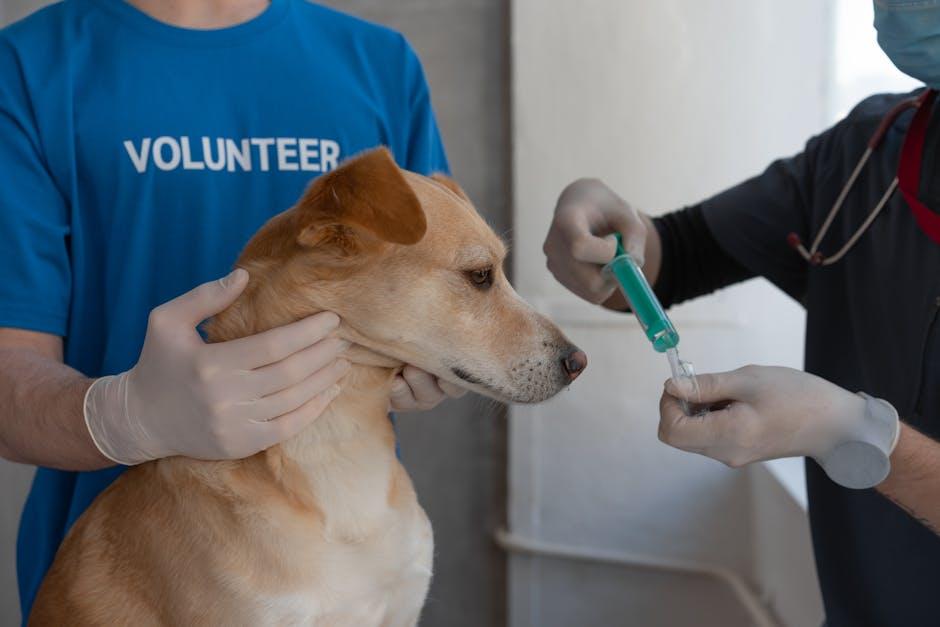In the cozy corners of our homes, where our furry companions bring endless joy and wagging tails, it’s easy to forget that their health needs are uniquely different from our own. As pet parents, we often turn to over-the-counter medications for quick fixes, hoping to ease their discomfort with the same remedies we trust for ourselves. But beneath the familiar labels and reassuring packaging lies a complex world of potential risks that can affect our beloved animals in unexpected ways. Join us as we embark on a journey to unravel the mysteries of these common medications, ensuring that our pets remain safe, healthy, and as spirited as ever.
Navigating the Aisle: Decoding Labels and Ingredients
Wandering through the aisles of your local pharmacy, you might be tempted to pick up a few over-the-counter (OTC) medications for your furry friend. However, understanding the labels and ingredients is crucial to ensure their safety. Pet-friendly doesn’t always mean safe, and it’s essential to decode the complex jargon on these packages.
Here are some tips to help you make informed decisions:
- Active Ingredients: Look for any that are specifically labeled as safe for pets. Human medications often contain substances that can be toxic to animals.
- Dosage Instructions: Even if a product is safe, the dosage for pets is vastly different. Consult your veterinarian to determine the right amount.
- Warning Labels: Pay attention to any warnings about side effects or interactions with other medications your pet might be taking.
- Inactive Ingredients: These can sometimes cause allergic reactions or other issues, so it’s wise to be aware of them as well.
By carefully examining labels and consulting professionals, you can help ensure your pet’s health and safety when considering OTC medications.

Hidden Dangers: Common OTC Medications to Avoid
While it’s tempting to turn to your medicine cabinet for quick pet relief, many over-the-counter (OTC) medications can pose serious risks to our furry friends. Ibuprofen, commonly found in brands like Advil and Motrin, is a prime example. Even small doses can lead to stomach ulcers, kidney failure, and in severe cases, death. Similarly, acetaminophen (Tylenol) can be toxic, especially to cats, causing liver damage and affecting their oxygen levels.
It’s crucial to be aware of seemingly harmless medications that could harm your pet. Here’s a list of common OTC drugs to keep out of reach:
- Aspirin: Can cause gastrointestinal issues and bleeding disorders.
- Cold and flu medications: Often contain ingredients like pseudoephedrine, which are toxic to pets.
- Antihistamines: While some are safe under vet guidance, others can cause severe side effects.
Always consult your veterinarian before administering any medication to ensure the safety and well-being of your beloved pet.

Paws and Pills: Safe Alternatives and Natural Remedies
- Herbal Supplements: Many pet owners are turning to natural herbs such as chamomile, valerian root, and ginger to help soothe anxiety, digestive issues, and nausea in their furry companions. These herbs are generally safe when used appropriately and can offer gentle relief without the side effects associated with traditional medications.
- Essential Oils: While some essential oils can be toxic to pets, others like lavender and frankincense, when used correctly, can provide calming effects and even aid in skin healing. Always ensure oils are properly diluted and consult with a veterinarian knowledgeable in aromatherapy for pets.
- Dietary Adjustments: Sometimes, the best remedy lies in the food bowl. Incorporating omega-3 fatty acids, turmeric, or probiotics into your pet’s diet can bolster their immune system, reduce inflammation, and promote overall wellness.
It’s crucial to approach natural remedies with the same care as conventional treatments. Consult your veterinarian to ensure these alternatives are appropriate for your pet’s specific health needs. By understanding and respecting the delicate balance of their systems, you can offer safe, effective care that aligns with their natural rhythms.

Consulting the Experts: When to Seek Veterinary Guidance
While it’s tempting to reach for over-the-counter solutions when your furry friend isn’t feeling their best, it’s crucial to know when to turn to the experts. Veterinary guidance ensures that your pet receives the most suitable care, tailored to their specific needs and health conditions. Not every medication is safe for every animal, and some human medications can be harmful or even fatal to pets.
Here are a few scenarios when consulting a veterinarian is essential:
- Persistent Symptoms: If your pet’s symptoms persist or worsen, professional advice is critical.
- Unfamiliar Medications: Always check with a vet before giving any new or unfamiliar medication.
- Underlying Health Issues: Pets with existing conditions may react differently to medications.
Relying on expert advice not only safeguards your pet’s health but also provides peace of mind, knowing you’re making informed choices.


































